[easy-social-share buttons=”facebook,twitter,pinterest,pocket,mail” counters=1 counter_pos=”hidden” total_counter_pos=”leftbig” style=”icon” twitter_user=”@Prostly” point_type=”simple”]
In their famous and tongue-in-cheek Cologne folk song ‘Dat Wasser vun Kölle‘ the band Bläck Fööss points out that the water of the city is so good it can even be used to develop photographs. I have never tried to develop holiday snaps in the Rhine, but as a local I can at least vouch for the fact that the beer brewed with that water is indeed first class and has been that way for a long time. Like many of the other major cities of Germany, Cologne was and is dominated by a certain type of beer – Kölsch, to be more precise. A clear, top-fermented beer mainly brewed from Pilsener malt and resembling a light, crisp lager. And not only does the city have its own style of beer, but is also the only one in Germany to have a protected geographical indication, comparable to the ‘apellation controlée‘ in France.
Kölsch, however, is not truly a heritage beer (Cologne breweries all brewed different types of beer before World War II), but was was created after 1945 to market this specific type of local beer better. The Kölsch breweries in Cologne and its immediate surroundings finally put this into law on March 6th, 1986 when the so-called Kölsch Convention was signed by the directors of 24 Kölsch breweries. The ruling determined that Kölsch is not only a type of beer, but also a designation of origin. The guidelines specify that true Kölsch is a top-fermented, light-coloured, clear, highly fermented, hoppy full ale which is brewed in the Cologne metropolitan area and according to the German Purity Law of 1516.
To underscore its invited heritage, Kölsch comes complete with its own serving traditions. It must always be served in small, 0.2 liter glasses. When drinkers have had their fill, they must put a coaster on top of the empty glass, otherwise waiters will keep the beer flowing without asking. Today, Kölsch is ubiquitous and you can get it literally everywhere in town, from the train station to small Italian restaurants.
Because of the market dominance of Kölsch, Cologne craft brewers are, unlike those in Berlin or Hamburg, latecomers to the German craft beer movement. In recent years however, the city has seen a resurgence of a clutch of new brewpubs, craft beer stores and beer festivals, where IPA’s and Stouts happily co-exist with the legendary Kölsch. Here’s list of breweries, bars and stores that best represent the beer culture in one of Germany’s oldest cities.
Cologne Beer Guide
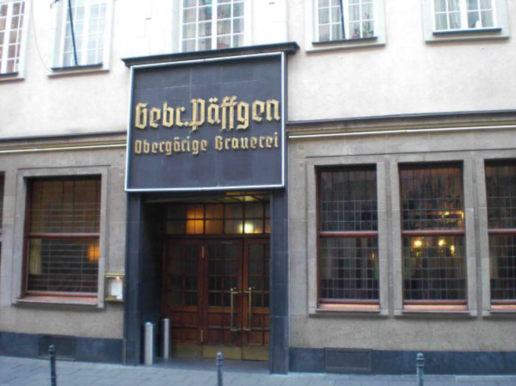
Brauerei Päffgen
In the dark beer halls of the small Päffgen brewery near Friesenplatz in the city centre, punters have been sampling a delicious version of Kölsch since 1884. Unlike the major breweries like Gaffel or Sion, Päffgen Koelsch is not bottled so the only way to drink it at home is by purchasing a keg. But when you visit the cozy, oak-panelled tap rooms you can also order one of the hearty local dishes like a 3/4 metre sausage, pork knuckle or roast chicken, and have the waiter (or Köbess, as they’re called in Cologne) bring Kölsch after Kölsch to your table until you feel ready to put a coaster on top.
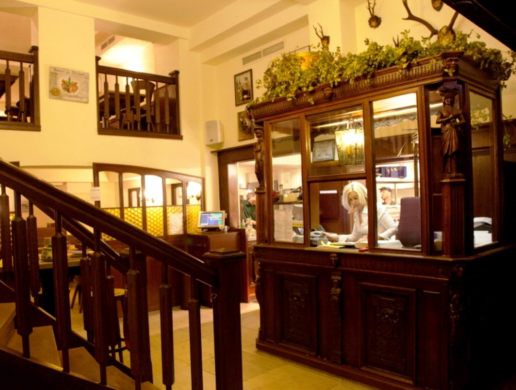
Brauhaus zur Malzmühle
My favourite Kölsch after Päffgen, Mühlen is brewed at the Brauerei zur Malzmühle (Brewery at the Malt Mill). The brewery was founded in 1858 by Hubert Koch as the ‘Bier und Malzextrakt Dampfbrauerei Koch, Cöln‘ (Beer and Malt Extract Steam Brewery, Cologne) and in 1912 the brewery was taken over by the brewer Gottfried Joseph Schwartz, who gave it its current name. Today, the brewery operates a traditional beer hall, a restaurant, a craft beer bar and a hotel (where some rooms come with taps).
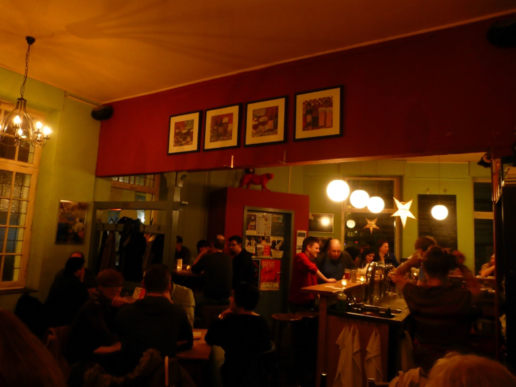
Braustelle
These days, the small corner pub/brewery could easily be labelled an artisanal boutique brewer, but has been known as an honest neighborhood brewery since it opened in 2001 – and shouldn’t that be the main reason that beer is brewed? Their Kölsch is called Helios, a nod to the electrical engineering company that used to have a massive factory just around the corner in the 19th century. Connoisseurs can also choose from specialities from other microbreweries on the extensive beer menu, and Braustelle also brews and bottles speciality beers like Pink Panther (an ale with hibiscus flowers) or White Brandy (a wheat beer matured in brandy kegs). Oh, and they also serve delicious local dishes like Schnitzel and meatballs.
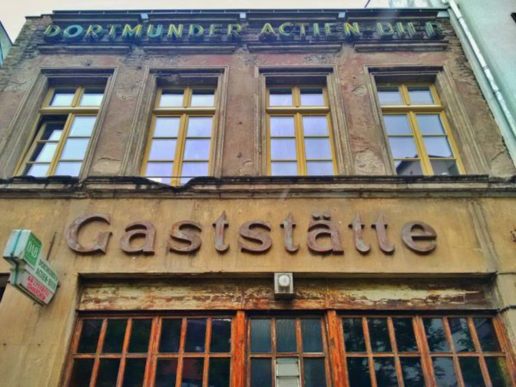
Lommerzheim
Over the years Cologne grew on both sides of the Rhine, but inhabitants still call the right bank of the river the Schäl Sick, the wrong side. One of the places that has long been the pride of the people on this wrong side is the Lommerzheim pub. Originally opened in 1959 on a small side street, the exterior of the building has never been renovated, making it stand out among all the nice new apartment buildings around it. And the same goes for the interior – all bleached-out wooden panelling, old posters and creaky tables.
The place is named after its original proprietor Hans ‘Lommi’ Lommerzheim, who operated the place together with his wife Annemie until his death in 2005. Annemie poured the beers, Hans served – there was no other staff. Local punters always loved the place, and also the simple food served here (pork cutlets and sandwiches). Today, the pub has been taken over by the Päffgen brewery (see above), but nothing else has changed: there is still good but simple food served along with many Kölsch and a lot of banter.
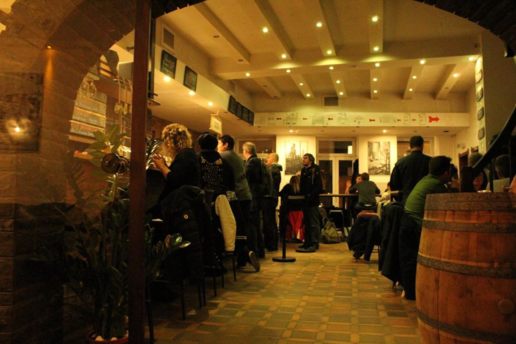
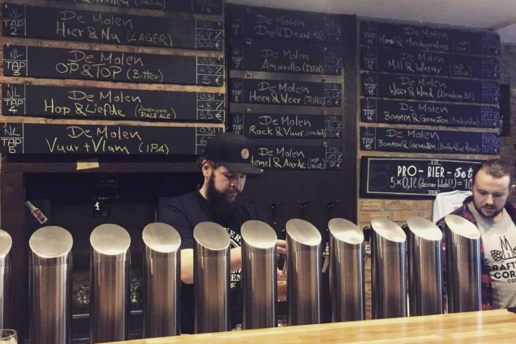
Craftbeer Corner Coeln
This is Cologne’s first proper taphouse which opened in 2016, with 15 different craft beers on tap and a daily changing beer menu. The CCC, situated right in the old town of the city, also offer tastings, meet-the-brewer-events and have tap-takeovers where select small breweries take over all 15 taps with their delicious beverages. It might get crowded on the weekends, but if you want to explore the world of craft beers – which is very often not about hipsterism but about cherishing slow food characteristics, locally-sourced ingredients and just enjoying a good beer – you should visit the craft beer corner and have a chat with the lads.
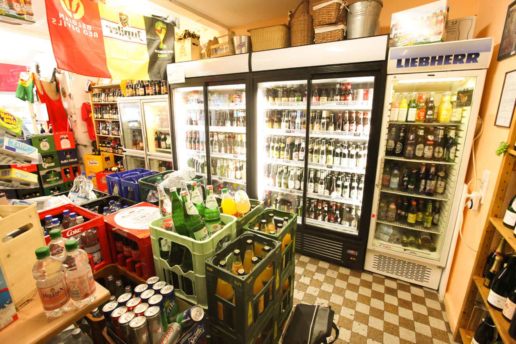
Brunne vun Kölle
As Cologne is just 100 kilometers from the Belgian border, it’s no wonder that many of the products of Europe’s best beer country make their way to the city. One of the best spots to sample bottled Belgian beers is this small shop in the increasingly gentrified Belgisches Viertel, the Belgian Quarter. Upon first glance it seems just a neighbourhood kiosk, a small shop that offers vegetables, coffee, eggs and other small items, especially after the local supermarket branches have closed. The name of the shop, however, indicates why this is one of my favourite spots: Brunne vun Kölle means the ‘Fountain of Cologne’, and besides the everyday-items their fridges are filled with delicious beers from Belgium, ranging from Lambic beers from Brussels over Trappist Doubles and Triples to special brews like Rodenbach – all in all easily over 40 varieties.
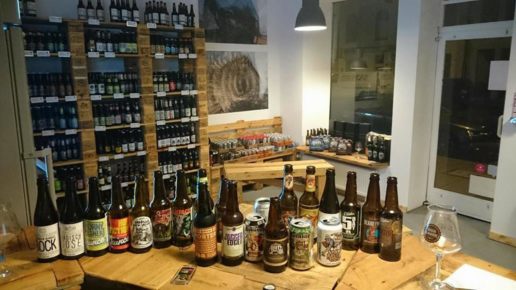
Bierlager
Like the Craft Beer Corner, the Bierlager (beer storage) is a recent addition to the beer topography of the city. Since 2015 they offer beers of the world from their small yet well-stocked shop in the south of the city. Besides craft and speciality beers from all around the globe, Bierlager also offers tastings, an online shop and a friendly staff who will be able to order most German craft beers within a couple of days.
About Spotted by Locals
This post was produced in partnership with Spotted by Locals – a series of apps and blogs with up-to-date tips by locals in 60+ cities across Europe and North America. To get more local tips, visit the Spotted by Locals website or download the app.
Download the Spotted by Locals app
Marcel is a blogger for Spotted by Locals Cologne
Cologne Beer Guide:
Photos from Bierlager, Brauhaus zur Malzmühle, vquante, Brunne vun Kölle, Craftbeer Corner Coeln, Chris Wiesner and Marcel Krueger
Marcel Krueger
Marcel Krueger is a writer and blogger living in Cologne. He is a contributor to Spotted by Locals Cologne. His new book 'Babushka's Journey: The Dark Road to Stalin's Wartime Camps' is out now.

